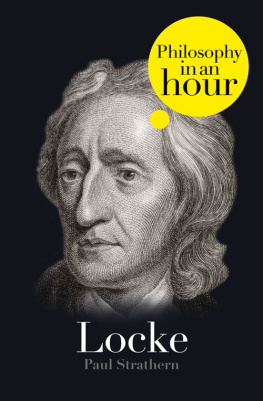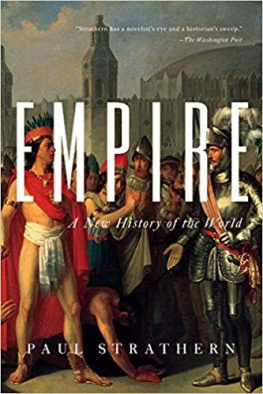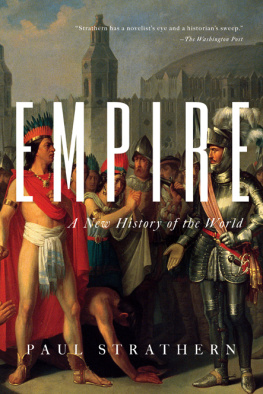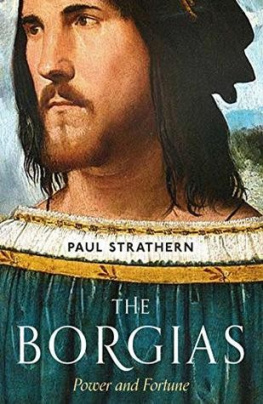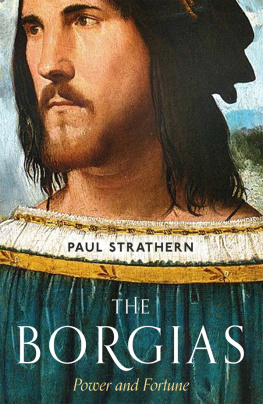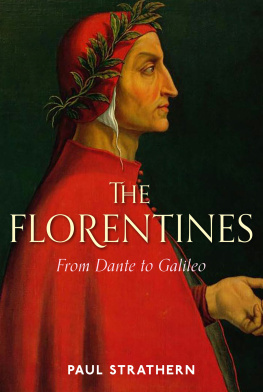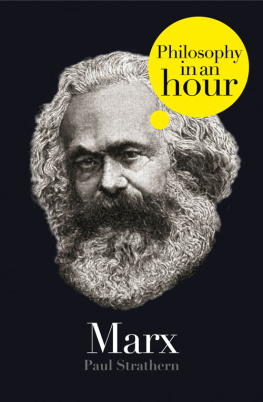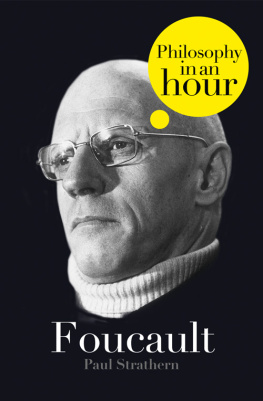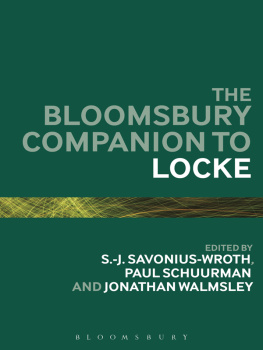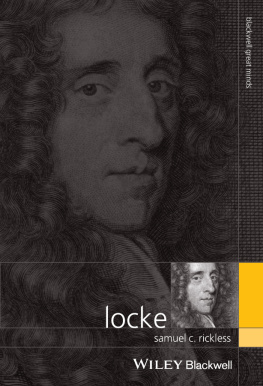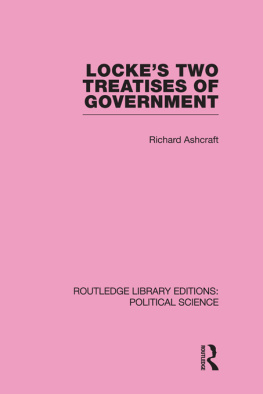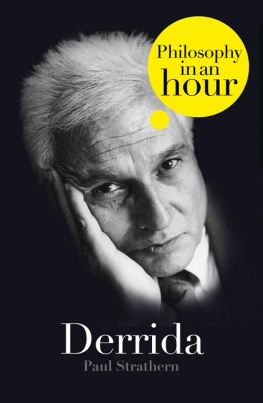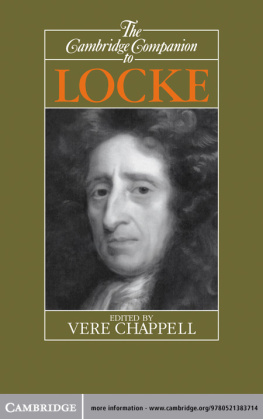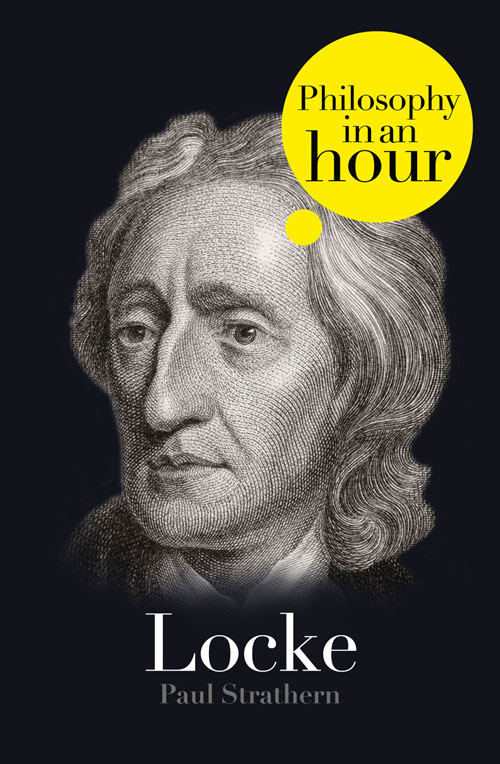Philosophy moves backward. It began with an infinite universe of complex, beautiful, and often conflicting ideas. Gradually, with the aid of religious bigotry, reason, and the will to understand, philosophy began to shrink this world to more comprehensible proportions. Everything became simpler, more obvious. Philosophy was regressing to the point where it described the world as we actually see it. With John Locke philosophy enters its flat-earth period.
Great ideas are often obvious. None more so than those of John Locke. Much of his thought we would now regard as common sense. His philosophy was to lay the foundations of empiricism, with its belief that our knowledge of the world is based on experience. It also introduced the idea of liberal democracy, which has become the shibboleth of Western civilisation. People who cant even spell philosophy are now likely to accept these philosophical tenets, which were incomprehensible just over three centuries ago.
This all makes Lockes philosophy rather uninteresting. But theres no reason why philosophy shouldnt be dull. On the contrary, there are very good reasons why it should be dull. It was when works of philosophy became interesting, and people actually began reading them, that the trouble started. People who read things are liable to believe in them, and then look what happens. The earlier part of the twentieth century remains as a hideous reminder of what happens when large groups of people start taking philosophy seriously. Fortunately, philosophy has now progressed well beyond the infantile stage where people who read it are expected to believe in it. But this was not always the case and many of the wisest philosophers have realised the pitfall of readers actually understanding what they were saying. Spinoza did his best to solve this problem by rendering his works unreadable. Socrates, on the other hand, decided that the best way was not to write down anything at all. (The former tactic was adopted by philosophers such as Kant and Hegel, the latter by Polique, Ehrensvard, and Huntingdon-Jones.) Lockes solution was to write philosophy that was so obvious it soon appeared dull. But it wasnt always so. Lockes thought and ideas were revolutionary in their time and altered the course of philosophy.
Locke was the only major philosopher to become a government minister. And it shows. He was a man of many parts, but he remained for the most part consistent and practical. His philosophy is one that actually works for both the individual and society at large.
Locke attempted to live a life that was almost as dull as his philosophy. Fortunately for us, though not for him, he lived in exciting times and couldnt avoid getting involved. John Locke was born on August 29, 1632, in a small, rather grubby thatched cottage by the church in the Somerset village of Wrington. His father was an unambitious country lawyer and his mother a tanners daughter, who was reputed to have been a great beauty. Soon after Johns birth his parents moved to a family property near the small market town of Pensford, just south of Bristol. Here Locke grew up in a Tudor farmhouse called Belluton. This building has long since disappeared, but the house that now occupies the site is said to have been built on its foundations. It stands on a hill above the rather ordinary little town of Pensford, but here on a summers day you have a breathtaking view out over the Mendip Hills in the direction of Midsommer Norton and Downside Abbey.
This rural idyll was shattered by the outbreak of the civil war in 1642, when John was ten. The war was the culmination of a long-standing dispute between King Charles I and Parliament. Charles believed in the divine right of kings, according to which the monarch received his authority direct from God, and was thus not answerable to institutions run by mere mortals, such as Parliament. The members of Parliament, who were responsible for voting the king his cash, thought otherwise. In fact, the civil war was basically a stand-up fight between the emerging merchantile class in the red corner, with the king and his landed aristocracy in the blue corner. It tore the country apart and was to bring about the first successful revolution in European history.
The Locke family supported the Parliamentarians. The local member of Parliament, Alexander Popham, became colonel of the regional Parliamentary militia and appointed Lockes father as his captain. Lockes father left home to join the campaign. After coming across a few unsuspecting Royalist columns, which they quickly put to flight, Colonel Pophams militia joined up with the Parliamentary army at Devizes. But this time the Royalists were prepared, and in the ensuing rout Lockes father and Popham were lucky to escape with their lives. After this they decided to withdraw from the military life and returned home.
By now the country was in turmoil, and Lockes family found themselves without means of support. Colonel Popham did his best for his old captain but only managed to secure him a post as the country clerk for sewers (this may well reflect how both these ex-warriors were held in local esteem).
In 1646 Charles I was captured, and three years later he was beheaded. The Commonwealth was established, with Oliver Cromwell soon emerging as its head. Meanwhile Colonel Popham was able to do a further favour for his friend Captain Locke. As a member of Parliament he was allowed to nominate pupils for entry to Westminster School in London, the finest in the land at the time. This favour, which he granted to the son of an obscure impecunious west-country lawyer, was to change John Lockes life. Without such an education it is doubtful whether Locke would have had the opportunity to realise his exceptional talents.
Curiously, although Westminster was controlled by a Parliamentary committee, it retained a Royalist headmaster. This was a failed actor called Dr. Busby, renowned for his dramatic and sadistic floggings. According to the poet John Dryden, who was a contemporary of Lockes at Westminster, our Master Busby used to whip a boy so long, till he made him a confirmed blockhead. But the essayist Richard Steele, who was also a pupil, was of the opinion that Busby had a genius for education. And, astonishingly, this is the view that has prevailed. Two centuries later the prime minister William Gladstone commended Dr. Busby as the founder of the public school system.
John Locke was a frail youngster, and the prospect of an encounter with Dr. Busby doubtless stimulated his dormant intellectual faculties to the full. As one of the brightest scholars at Westminster, Locke would certainly have got to know the precocious Dryden, who was already publishing poetry before he left school. Dryden appears to have learned something from his Royalist headmasters survival technique in a school that stood in the very shadow of Parliament, during a time when the king was executed just across Parliament Square in Whitehall. At the age of twenty-six Dryden was to write a heroic tribute to Oliver Cromwell. Two years later, when the monarchy was restored, Dryden composed an equally mellifluous celebration of Charles II, and was later rewarded with the post of poet laureate. While poet laureate he composed a paean to the Anglican church; but when the Catholic James II ascended to the throne he changed his mind, became a Roman Catholic, and wrote an epic celebration of Catholicism. Unfortunately this time he was caught, because a few years later the Protestant King William assumed the throne, and Dryden was stripped of his poet laureateship. All this is far too interesting to have anything to do with John Locke, but it serves to illustrate the frequent (and often dangerous) shifts of political fortune that were to take place during his lifetime.

